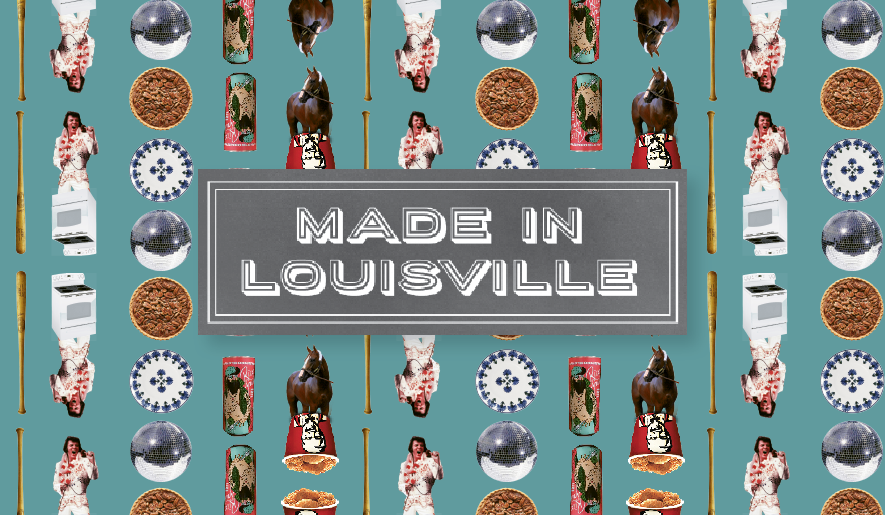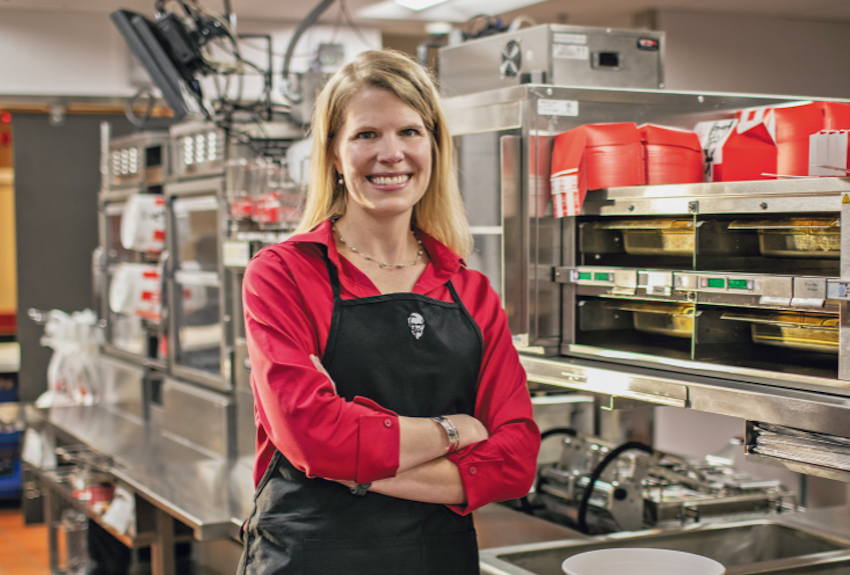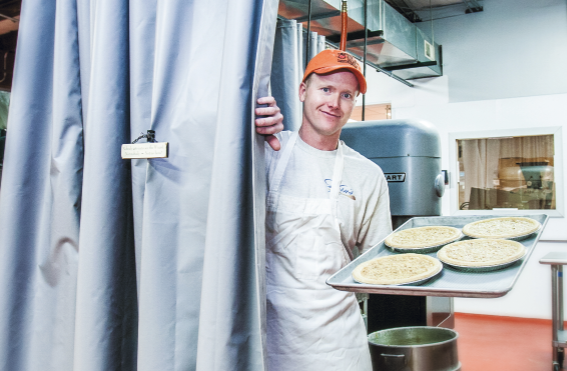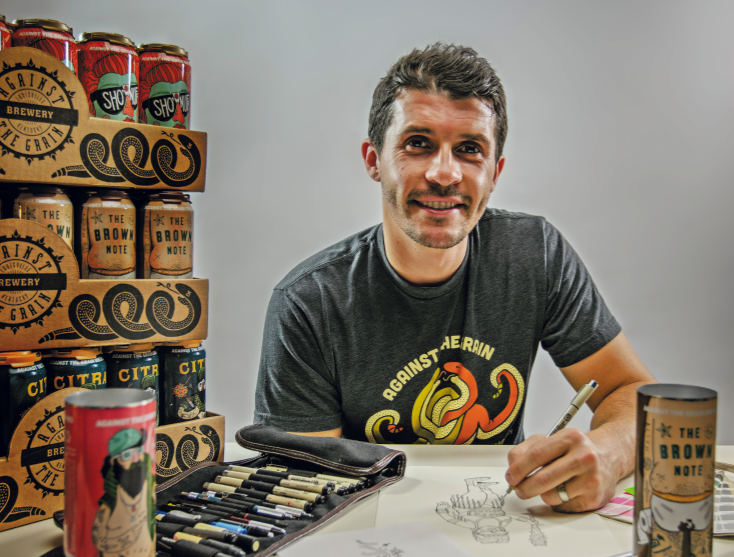This article originally appeared in the December 2015 issue of Louisville Magazine.
To subscribe to Louisville Magazine, please click here.

1. Butch Polston, B&K Enterprises, Elvis costume maker
In 1979, at an Elvis fan club meeting at a Louisville hotel, Butch Polston met a woman who’d made a jumpsuit for her son. “I told her, ‘I just want to see if I can design them like the ones Elvis wore,’” Polston says. She made him four suits, which Polston decorated with supplies he’d purchased at Baer Fabrics. The next August, three years after Elvis’ death, he and his wife and their infant son Michael traveled in their ’68 Oldsmobile clunker to Memphis, Tennessee, to meet other fans. “We had no money,” Polston says. “I funded our first vacation to Memphis by scrapping junk.” Fans left their hotel doors open, buying and trading pictures and albums. Polston spread his jumpsuits on the bed — not to sell but as conversation starters.
“This guy with that Elvis blue-black hair walked in, said he was doing a show in Vegas. He said, ‘How much you want for ’em?’”
Huh?
Well, what are you selling ’em for?
The man offered $500 apiece.
2. Jenny Nixon, KFC, senior manager of food innovation
Jenny Nixon is a 37-year-old who say her job is mostly failure; KFC proposes upwards of a hundred new ideas per year, but only “a handful” make it through the months-long conceptualizing-to-cooking-to-tasting-to-retrying-to-test marketing-to-restaurant releasing-to-advertising process. “Some ideas last for five minutes,” she says.
But Nixon prefers to focus on ideas that actually become food.
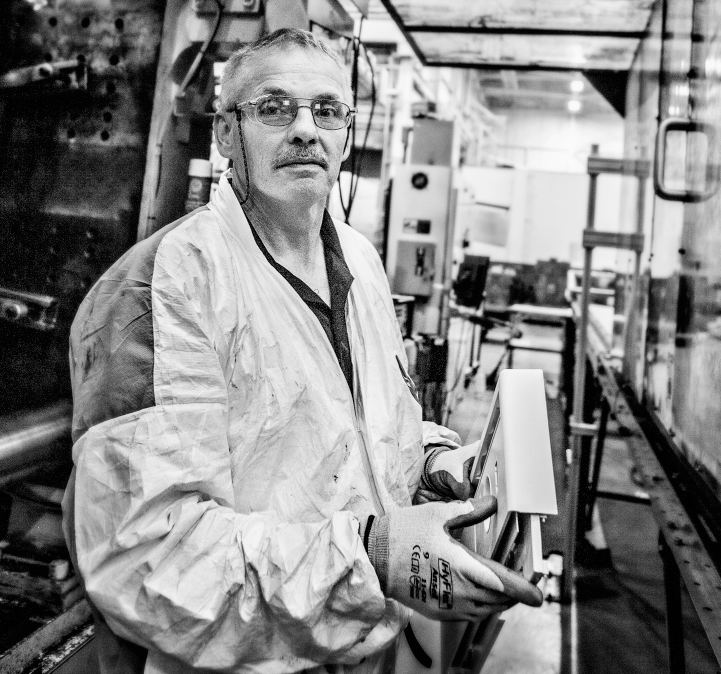
3. Doug Tucker, General Electric, mold setter
Doug Tucker, a barrel-chested 58-year-old with light-blue eyes, thinning white hair and a trim mustache, works as a mold setter in GE’s plastic-injection-molding operation. Those plastic baskets that hold utensils in the dishwasher? That gadget that lets dishwasher racks glide in and out? An ice bucket in your freezer? Tucker makes it all. And about 300 other plastic bits for appliances.
“I’ve opened my friends’ refrigerators and I can see when it was made and know exactly what parts I made,” he says with a laugh.
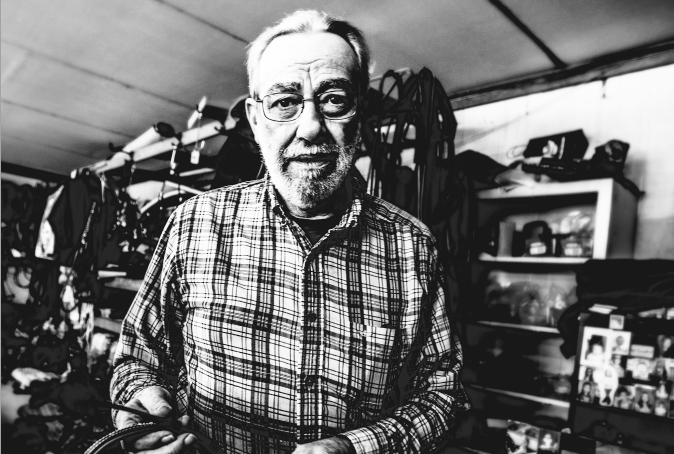
4. Kenny Luckett, Luckett's Tack Shop
When Luckett was 21, he got a job at a leatherworking division of Wagner’s Pharmacy, learning the craft. He left the industry for nine years, working as a truck driver, and then returned to Wagner’s when he was 32. Not long after, he bought his own sewing machine and saw the potential in his hands. Now he has a longstanding business that employs four people, not including him and his wife Dee Dee.
His business is mostly the creation and repair of leather equestrian equipment.
Luckett’s sold between 300 and 400 halters last year, 34 of which you might have seen during the Oaks or Derby. “American Pharoah? We made a lot of stuff for him,” Luckett says.
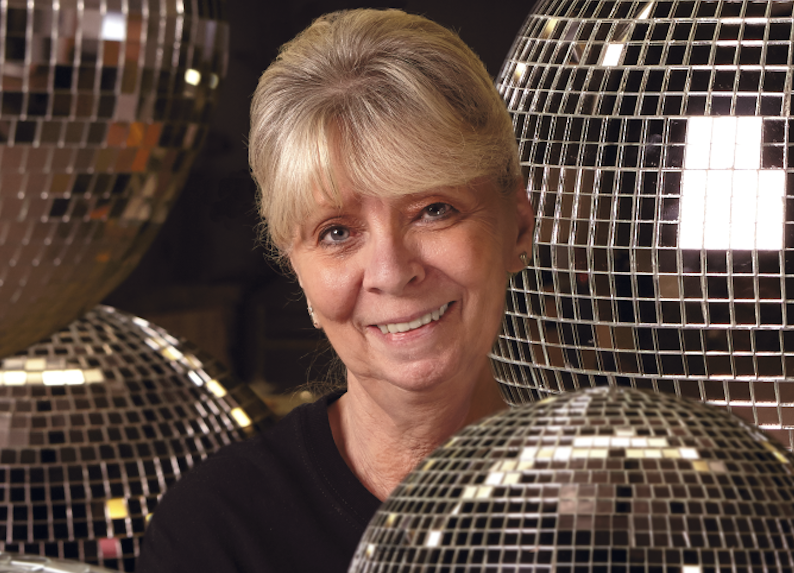
5. Yolanda Baker, Omega National Products, disco ball maker
Omega National Products has been making decorative glass for 70 years and the mirrored-glass spheres for the past 50. Yolanda Baker has been making disco balls since she walked in looking for a job in 1968. Today, she turns out about 15 a month. I point to one that’s 36 inches in diameter — large enough for me to crawl inside — and ask her how long it took her to make. “About 45 minutes,” she says.
That’s just to glue the tiny mirror pieces on the cloth that covers the aluminum ball. “It’s just practice, practice, practice,” the 69-year-old says. Before gluing the pieces to the ball, Baker will cut the glass, which any of the warehouse’s seven workers will have silvered the back of, and lay each piece flat. “You’d think it’s really time-consuming, but it actually isn’t, and it makes your day go fast,” she says. “That’s what I like about it.”
6. JB Keahey, Kern's Kitchen, Derby Pie maker
A tiny sign hangs from a giant curtain and reads: “Nobody gets to see the wizard. Not nobody, not no how!” Right now the curtain is open as JB Keahey, the second person outside the Kern family to know the secret Derby Pie recipe in the business’s 61 years, cracks eggs. Keahey swiftly hits the shells on the rim of a metal bowl, cracking five in the time it takes an average cook to crack one. Keahey, 34, has been the production manager for the past six years.
I ask him what the consequences would be if he were to let the recipe slip.
President Alan Rupp laughs and Keahey says, “It’s not gonna slip.”

7. Colleen Gipson, Louisville Stoneware, artist
Louisville Stoneware, known for its personalized mugs, platters, pitchers and other kitchenware found in homes across the country, goes back 200 years.
“I just tell everybody we’re primitive where I work,” Gipson says. “With everything so fast-paced nowadays, I can still tell people it’s gonna take awhile to do something because at least 20-plus sets of hands touch each piece as we’re going.”
When she gets an item, it’s in the greenware stage, meaning her colleagues in the manufacturing department have added water to the clay and either cast it or jiggered it before sending it through the finishing area, where it’s smoothed and dried before she paints it.
8. Robby Davis, Against the Grain Brewery, beer label designer
About seven years ago, Robby Davis was selling his art, much of it oddball character illustrations, at the UnFair, the art show at the Magnolia Bar that coincides with the St. James Court Art Show. “And I said, ‘Oh, my God, this stuff’s awesome. I would love to have all of this,’” Sam Cruz, one of Against the Grain Brewery's four owners, tells me on a recent morning at the brewery, located in the Slugger Field building.
“So I said to him, ‘You know, I will have a brewery one day, and I would love it if you would do the labels for my beer bottles.”
Two-and-a-half years later, in 2011, Davis got a text from Cruz saying the brewery was happening and asking him if he’d help them develop their brand.
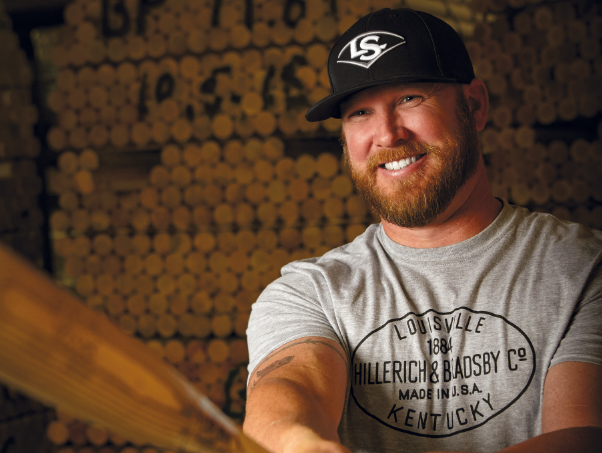
9. Garrik Napier, Louisville Slugger, pro bat coordinator
Napier oversees a production line that makes 300 pro bats and “MLB Prime” bats per day. Prime bats are pro-quality but available to anyone with $100 or so bucks.
When Napier tells strangers what he does for a living, their curiosity begs for the who more than the what. Some of baseball’s best? They depend on him. The Miami Marlins second baseman wants to come to the factory in three days to create a custom bat. Derek Jeter consistently used a Louisville Slugger P72 for all 12,000-plus plate appearances. Napier helped make some of those.
This article originally appeared in the December 2015 issue of Louisville Magazine.
To subscribe to Louisville Magazine, please click here.

